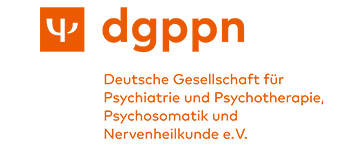What to eat? When to eat? I would most like to eat nothing. Less and less.
Please note that health information can only support the conversation with a psychotherapist or physician: It should never be a substitute for it!
What is anorexia?
The typical sign of anorexia (full medical term: anorexia nervosa) is having strong underweight. Despite this underweight, sufferers find themselves too fat and live in constant fear of gaining weight. Accordingly, they keep a strict diet, exercise excessively or steer themselves against a supposed weight gain following "binge eating" by vomiting, taking laxatives, diuretics or other medications.
The underweight can also lead to changes in the hormonal balance. For example, many anorexic girls and women no longer have menstrual periods, while boys and men suffer from a lack of sexual desire or even impotence.
How frequent is anorexia?
Out of every 100 people, around one person suffers from anorexia. However, much more frequent in Germany is "eating disorder not otherwise specified". This includes sufferers who show the respective symptoms (signs of illness) but not to a sufficient extent to justify a diagnosis of "anorexia". According to present studies, 19 out of 100 people show symptoms of an eating disorder in the course of their whole lives.
Is anorexia curable?
Around 40 to 60 out of 100 sufferers complete a psychotherapy and are seen as successfully treated five years later. In around 30 out of 100 affected persons, the anorexia remains in the long term. The risk of dying from anorexia is high compared to other mental illnesses due to the in part serious physical consequences and the increased risk of suicide.
How does anorexia emerge?
Societal influences such as our strong emphasis on being thin as an ideal of beauty and the constant availability of calorie-rich food play a role. Besides, biological factors (e.g. heredity), personal conditions (e.g. low self-esteem) and life history (e.g. loss of an attachment figure) of the sufferer also contribute to the development of an eating disorder such as anorexia.
"What should I eat? When should I eat? Preferably nothing at all. Less and less."
Wibke S., experience of an eating disorder.
Who is particularly at risk?
Women show an approximately tenfold increased risk of suffering from anorexia compared to men. During adolescence between the ages of 14 and 18 years, the risk is highest. Recreational and elite sportspeople who do a sport in which appearance plays a large role or for which a certain weight is a prerequisite for participation also face an increased risk. Female first-degree relatives of anorexics, i.e. sisters, mothers or the sufferer's own daughters have an approximately eleven-fold higher risk of suffering from anorexia.
How do you find out if you are anorexic?
Signs of the onset of an eating disorder can include the following: dissatisfaction with one's own eating behaviour, worries about one's own weight, figure and eating habits, limitation of food intake (fasting or dieting), secret eating, vomiting or binges.
Anorexia does not emerge over night. It is very important that sufferers look for help early in order to commence a successful treatment. This generally begins with the GP - or better still with a visit to a psychotherapist where a physical examination as well as a detailed conversation take place. Based on the outcome of the examination, it is decided which further treatment is recommended.
How is anorexia treated?
Psychotherapy according to the cognitive-behavioural therapy approach or the psychodynamic therapy approach has proved to be particularly successful in the treatment of anorexia. It is important that the therapist who provides this treatment has specific knowledge and is well-grounded experienced in the area of eating disorders. Sometimes even family members are included in the therapy, if the patient wishes so.
During outpatient psychotherapies, sufferers generally have weekly appointments with a psychotherapist. Upon consultation with the treating doctor, an additional medication can sometimes be useful.
Often, an outpatient treatment alone is not sufficient and a hospital stay at a specialised constitution is recommendable (clinics for psychosomatic medicine and psychotherapy).
However, if getting in contact with a psychotherapist or a clinic is an effort too big, sufferers can go to a specialist advice centre. The employees of the advice centre provide information about the illness, the different treatments offered and pass on suitable addresses. A list of specialist advice centres for patients with eating disorders can be found via the "Bundeszentrale für Gesundheitliche Aufklärung" (German version).
What can friends and family do?
It is necessary to address the topic directly but gently. Even if no conversation develops at the first attempt, it is recommended to continue. Also it is important that the person concerned feels understood and supported, instead of pushed too much. Family members and friends of sufferers can contact advice centres for eating disorders, GPs and specialised physicians as well as psychotherapists.



![Information [br] [m]anorexia[/m]](/cache/com_pagebuilder/2a3fb25d543346f7d0feb41514153dde.jpg)


